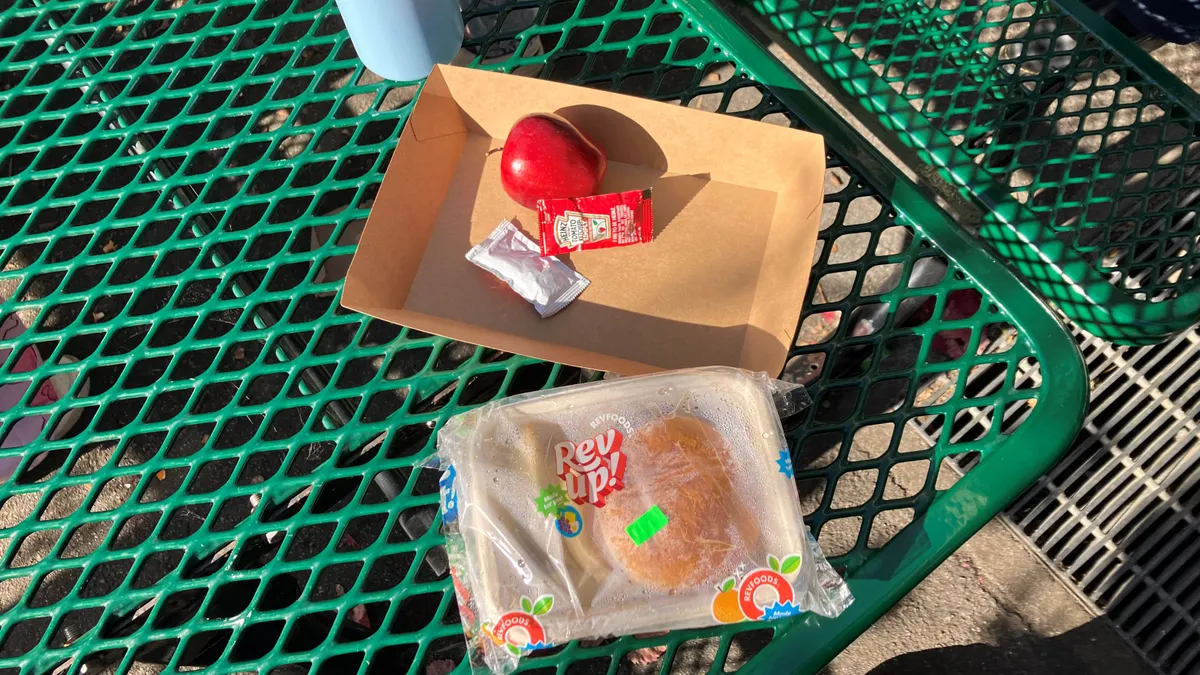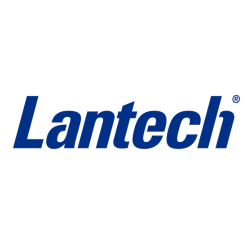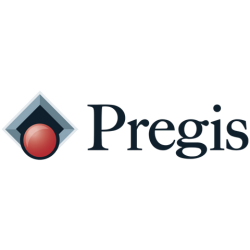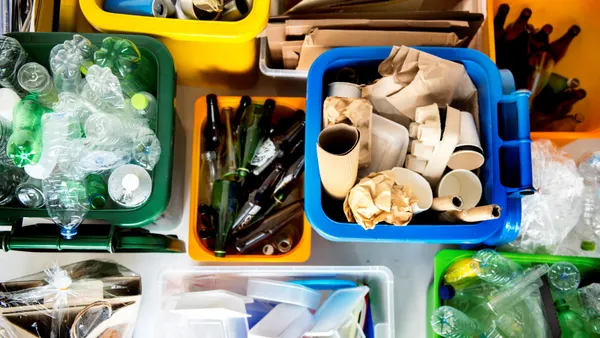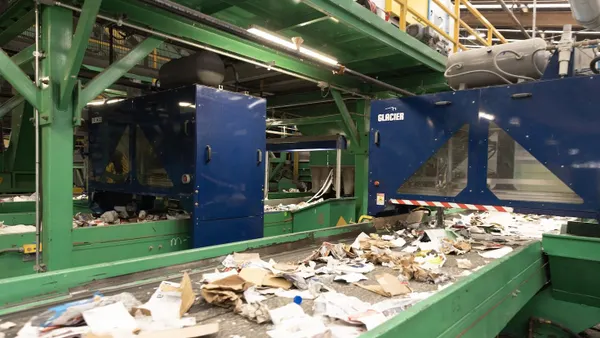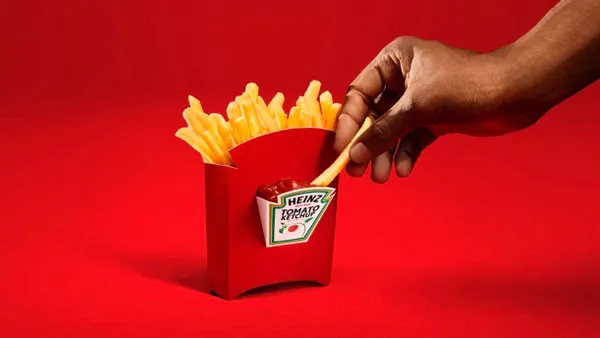Companies constantly innovate and redesign their packaging to boost performance, enhance sustainability and improve marketability. Here’s a look at three recent packaging product launches on Packaging Dive’s radar.
Stripping down
Sam’s Club China is refusing to be labeled. It introduced label-free water bottles under private label brand Maker’s Mark in a trial run.
The changes improve sustainability in multiple ways, according to a news release. They reduce plastic and ink use, which makes the bottles easier to recycle because they only have one material. Labels typically are separated during recycling processes and are disposed. This design also reduces energy consumption, according to the company.
Instead of posting the product’s nutrition facts on each bottle label, that information will be available on the case packaging; these bottles will not be sold individually.
Sam’s Club will monitor customer responses to the new packaging during the trial. So far, the club store does not plan to launch the label-free bottles in the United States, according to Progressive Grocer.
Algae is the new black
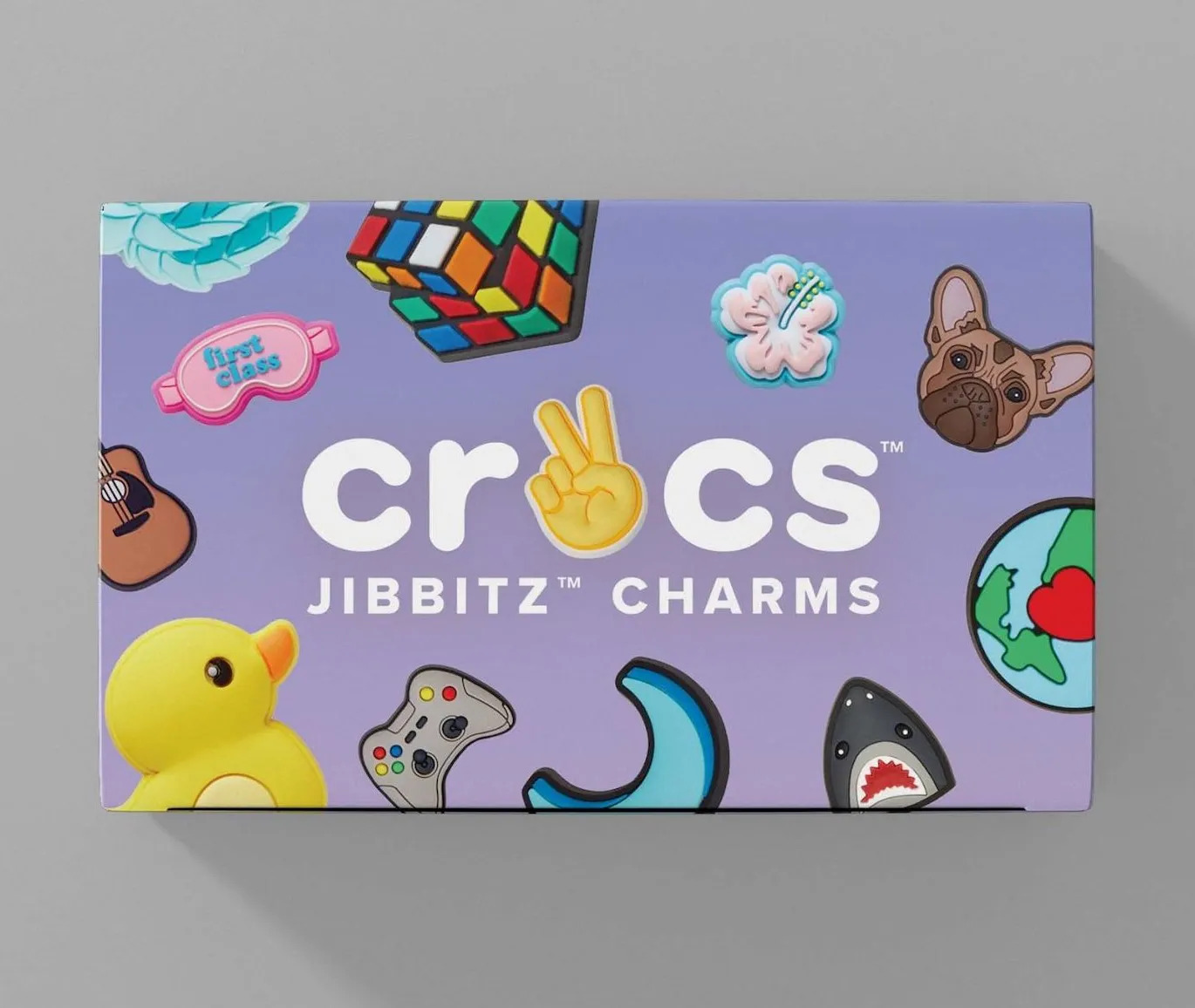
Via a partnership with EcoEnclose, Crocs is using on its boxes Living Ink Technologies’ CMYK-compatible black ink made from algae. It’s a “first-of-its-kind commercial application” that has scaled with more than 3.2 million boxes printed so far, according to an EcoEnclose news release.
CMYK printing uses cyan, magenta, yellow and key (black) inks to create full-color images, with the key often using carbon black as its pigment. Carbon black is derived from fossil-based sources and is being phased out in certain packaging applications.
“The idea of being the first brand to incorporate black Algae Ink using a 4 color process was very exciting,” Amber Bochmann, senior retail operations manager at Crocs, said in the release.
Living Ink says the biobased ink does not affect color fidelity or drying time.
Locked down
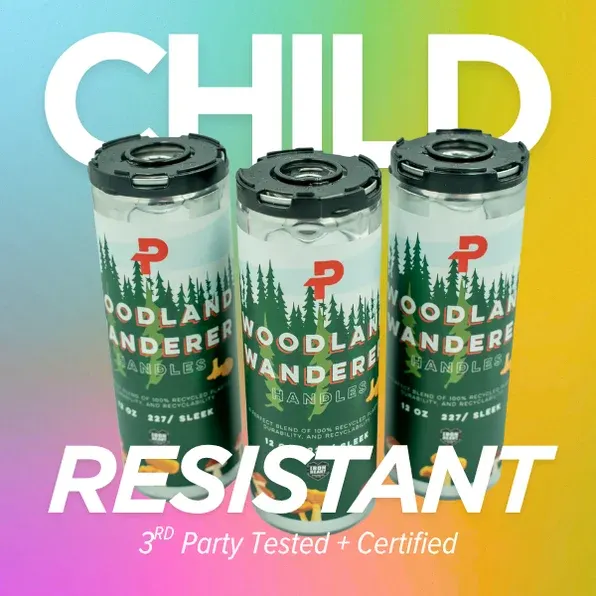
PakTech introduced the PakLock, a certified child-resistant cap designed specifically for beverages infused with hemp and cannabis. The cap works both with standard 202-260 aluminum cans and sleek 202-227 cans.
The company also heralds the product’s sustainability features: It is made from 100% recycled HDPE plastic and is recyclable after use, according to a news release. The near-infrared detectable black colorant is made from renewable biomaterials. Other black plastics tend to use carbon black as the main colorant, which makes the items undetectable to conventional recycling sortation equipment.
“As hemp and cannabis beverages continue to gain popularity, ensuring safe and compliant packaging has never been more important,” PakTech CEO Brandon Rogers said in the release. “PakLock delivers the perfect balance of safety, ease of use, and sustainability, enabling brands to protect their consumers while elevating their product presentation.”






